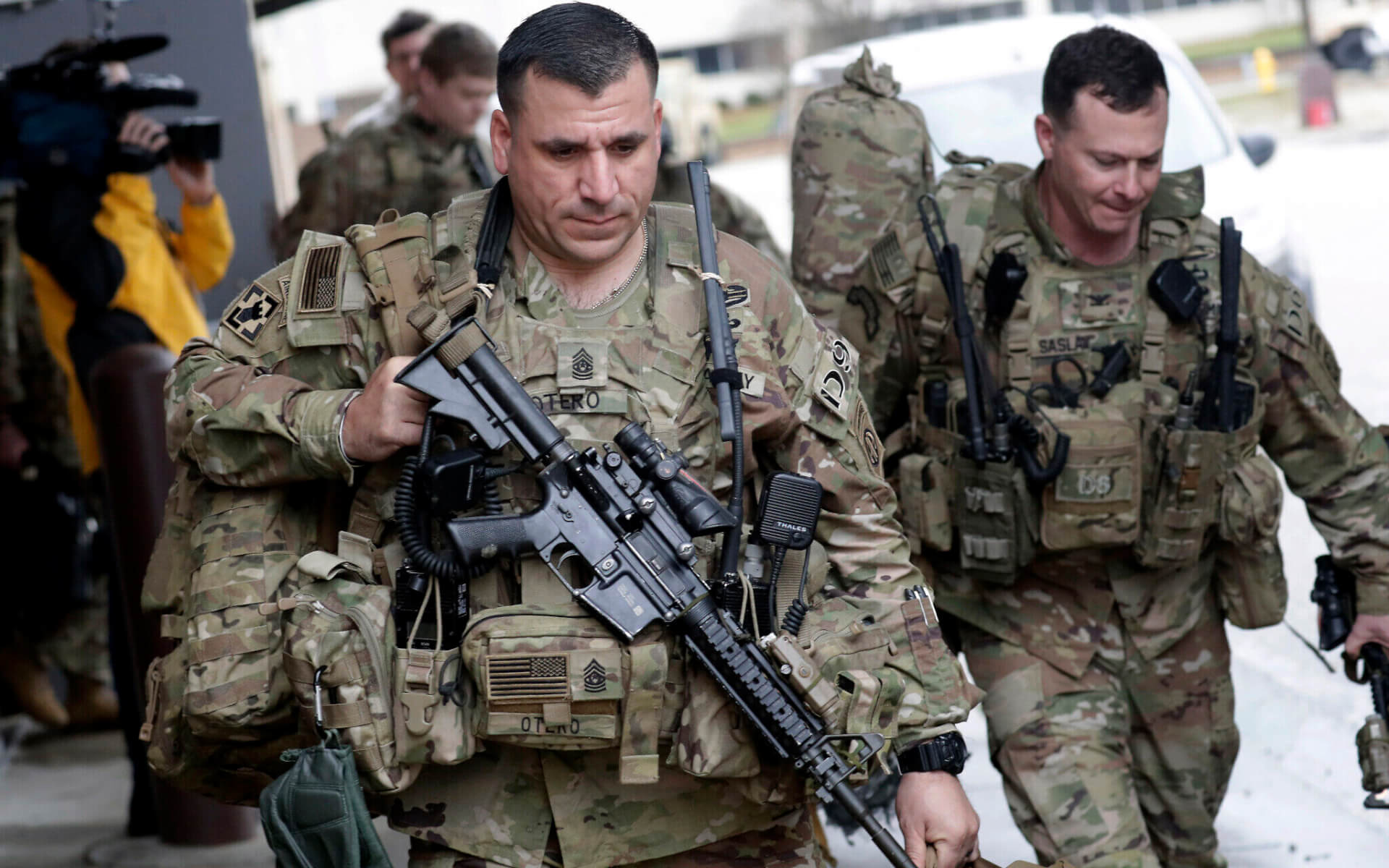A few days after United States President Donald Trump reiterated his vow to withdraw all American troops from Iraq, the US-led coalition on Sunday retracted its forces stationed at the Taji military base, handing over the facility to Iraqi security troops. This marks the eighth return of a coalition base back to Iraqi forces.
Camp Taji has been the site of several attacks by Iran-backed forces targeting US troops over the past few months. Located around 20 km north of the Iraqi capital, the base had been home to 2,000 coalition troops, many of whom vacated the premises this summer. “The movement of coalition military personnel is part of a long-range plan coordinated with the government of Iraq,” the coalition said in a statement.
The remaining troops are set to depart from the country over the next few weeks after finalizing the handover of equipment and intelligence to Iraqi forces. The US had around 5,000 troops stationed in the Middle Eastern country, while its coalition allies had a further 2,500.
At the handover ceremony, coalition spokesperson Colonel Myles Caggins III said, “This is an important day. The coalition is leaving our site inside Camp Taji, transferring out of this base, and handing over $347m of property, equipment and enhanced training facilities to the Iraqi security forces... We are making these transitions because the Iraqi security forces are successful against Daesh.”
In a vote that came after the January air raid by US forces that killed Iran’s top General Qassem Soleimani and Iraqi leader Abu Mahdi al-Muhandis in Baghdad, the Iraqi parliament decided upon the departure of all foreign troops from Iraq. Following Iran’s retaliatory attacks on two Iraqi bases hosting American troops, the fear of a full-blown military conflict prompted both the US and Iran to signal towards de-escalation, with the Trump administration announcing that it would retract its military presence from the country.
Simultaneously, Washington is also working with Baghdad to reduce its dependency on energy from Tehran and is proceeding with a project to connect the Iraqi power grid with those of Gulf states like Saudi Arabia. On Friday, Iraq’s oil minister Ihsan Abdul Jabbar released a joint statement with his Saudi counterpart Prince Abdulaziz bin Salman al-Saud, pledging to cut the country’s oil output by an additional 400,000 barrels per day in August and September, in addition to the OPEC+ supply pact, to compensate for overproduction over the past few months.
US Withdraws Troops from Camp Taji, Returns Base to Iraq
The remaining troops are set to depart from Iraq over the next few weeks.
August 24, 2020

SOURCE: AP PHOTO/CHRIS SEWARD
